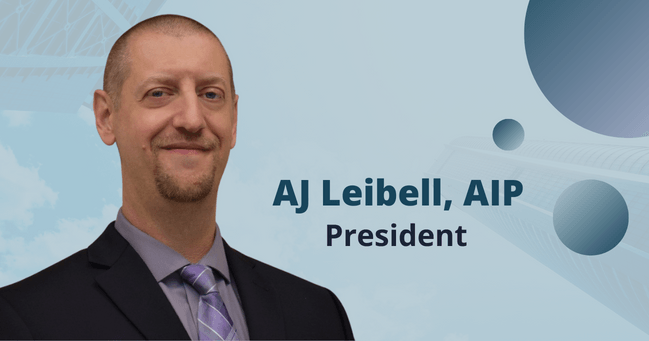Florida Garage Door Installer Insurance
8:30am - 5:00pm Mon-Fri
Will Reply in 15min*
Top Recommended Business Insurance Policies

Index
Why Garage Door Installer Insurance Is Essential in Florida
Understanding Florida’s Insurance Market for Garage Door Installers
Key Types of Insurance Coverage for Garage Door Installers
How Hurricane Risks Influence Garage Door Installer Insurance
Navigating Claims and Legal Challenges in Florida
Contact Us
Phone
Location
Operating as a garage door installer in Florida comes with unique challenges, especially when it comes to insurance. The state’s exposure to hurricanes and severe weather events, combined with a complex insurance market, means that installers must carefully navigate coverage options to protect their business and clients. Understanding the insurance landscape is crucial to avoid costly pitfalls and ensure compliance with state regulations.
Florida’s property insurance market is gradually stabilizing, with recent data showing modest rate increases and some insurers even reducing rates. However, the risk of denied claims remains significant, prompting nearly 13 percent of Florida homeowners whose claims were denied in 2024 to take legal action against their insurance companies, up from 12.4 percent in 2022. This trend highlights the importance of having comprehensive insurance coverage that aligns with local risks and regulations. For garage door installers, this means securing policies that cover both liability and property damage in a state prone to natural disasters. More about Florida’s improving insurance market can be found through the
Florida Office of Insurance Regulation.
Why Garage Door Installer Insurance Is Essential in Florida
Garage doors are a critical component of home security and protection against weather damage. For installers, the risk of accidental damage during installation or repair is high, making liability insurance a must-have. Additionally, Florida’s frequent hurricanes and storms can cause damage to garage doors, leading to insurance claims that require careful handling.
Recent studies emphasize the importance of using code-compliant garage doors in hurricane-prone areas. A study by DASMA found that newer garage doors built to current codes performed exceptionally well during Category 4 hurricanes. This not only protects homeowners but also reduces the risk of claims disputes for installers who recommend and install these doors.
Liability coverage protects installers from lawsuits related to property damage or bodily injury during work. Given that Florida homeowners are increasingly suing insurance companies over denied claims, having solid insurance coverage can help installers avoid becoming entangled in legal battles or facing out-of-pocket costs.
Moreover, the unique climate of Florida, characterized by high humidity and salt air, can lead to accelerated wear and tear on garage door components. Installers must be aware of these environmental factors when selecting materials and products for their clients. Comprehensive insurance not only covers accidents but also provides peace of mind for installers when advising homeowners on the best options for durability and longevity. This knowledge can enhance the installer’s reputation as a trusted expert in the field, fostering customer loyalty and repeat business.
Additionally, the competitive nature of the garage door installation market in Florida means that installers must differentiate themselves. Offering a guarantee that includes insurance coverage can be a significant selling point. Homeowners are more likely to choose an installer who demonstrates responsibility and professionalism through adequate insurance, knowing that they are protected against unforeseen circumstances. This proactive approach not only safeguards the installer’s business but also builds a strong foundation of trust with clients, ensuring that they feel secure in their investment.
Understanding Florida’s Insurance Market for Garage Door Installers
The Florida insurance market has been volatile in recent years due to climate risks and regulatory changes. However, there are signs of improvement. As of August 2024, the average request for homeowners’ rate increases was only 1.2 percent, with several companies filing for rate decreases or zero percent increases affecting nearly two million policies statewide. This trend suggests a more stable environment for both homeowners and service providers like garage door installers.
Despite this progress, installers must remain vigilant. Emergency repair calls during hurricane season can drive up labor costs significantly. In Orlando, for instance, garage door technicians typically charge between $70 and $110 per hour, with emergency rates often higher. This cost variability affects how installers price their services and manage insurance claims.
Moreover, Florida’s insurance landscape for garage owners is described as dynamic and often daunting. The combination of natural disasters, shifting regulations, and competitive service markets means installers must stay informed and prepared. Expert advice from Florida Garage Insurance underscores the need for comprehensive protection and compliance strategies tailored to this environment.
In addition to the challenges posed by natural disasters, garage door installers in Florida must also navigate the complexities of liability insurance. This type of coverage is crucial for protecting against potential lawsuits stemming from accidents or injuries that may occur during installation or repair work. Installers should consider policies that not only cover property damage but also provide adequate liability limits to safeguard their business. Furthermore, understanding the nuances of workers' compensation insurance is essential, especially for those employing a team of technicians. This coverage not only protects employees but also enhances the installer’s reputation as a responsible employer.
Another factor influencing the insurance market is the increasing demand for smart garage door technology. As homeowners seek to integrate more advanced systems into their homes, garage door installers are presented with new opportunities and challenges. These high-tech installations often require specialized training and knowledge, which can impact insurance premiums. Installers who invest in continuous education and certification in smart technology may find that they can not only enhance their service offerings but also potentially lower their insurance costs by demonstrating a commitment to safety and quality. As the market evolves, staying ahead of these trends will be vital for installers looking to thrive in Florida's competitive landscape.
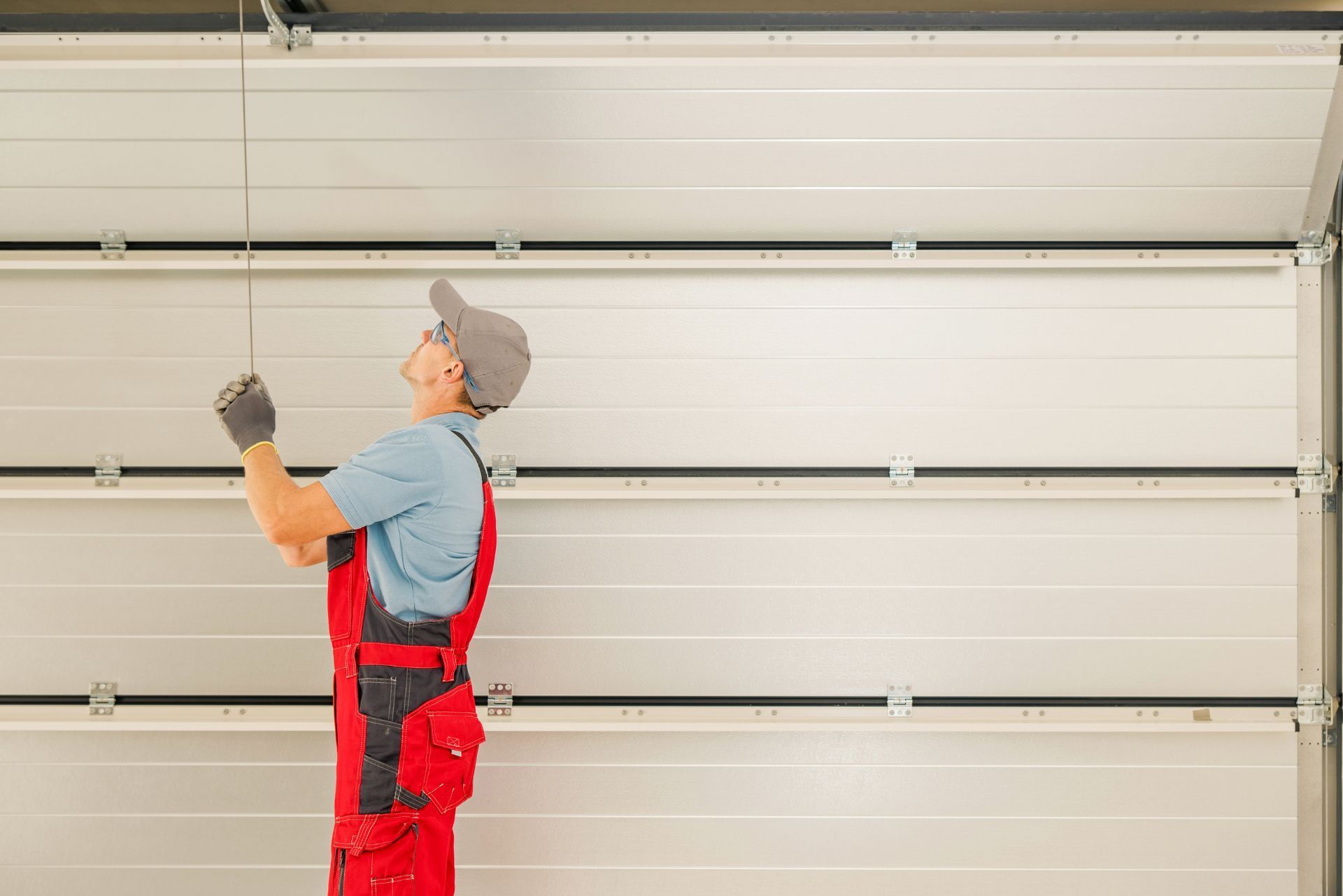
Key Types of Insurance Coverage for Garage Door Installers
Choosing the right insurance involves understanding the specific risks faced by garage door installers. The following coverages are essential:
- General Liability Insurance: Covers bodily injury and property damage claims arising from installation work. This is critical to protect against lawsuits from clients or third parties.
- Commercial Property Insurance: Protects tools, equipment, and business property from damage or theft. Given the high value of specialized garage door equipment, this coverage is important.
- Workers’ Compensation: Required if the installer employs staff. Covers medical expenses and lost wages for employees injured on the job.
- Commercial Auto Insurance: If vehicles are used for transporting equipment or traveling to job sites, this coverage is necessary.
- Professional Liability Insurance: Also known as errors and omissions insurance, it covers claims related to faulty workmanship or failure to meet contractual obligations.
Each policy should be tailored to the business size, scope, and risk profile. For example, installers working in hurricane-prone areas might want to consider additional coverage for weather-related damages or business interruption. Additionally, those who frequently work with high-end or custom installations may benefit from specialized coverage that addresses unique risks associated with premium products. This could include protection against theft or damage during transport, as well as coverage for any specialized tools that are not typically covered under standard commercial property insurance.
Moreover, garage door installers should also consider the importance of liability waivers and contracts that clearly outline the scope of work and responsibilities. Having well-drafted agreements can help mitigate potential disputes and provide an additional layer of protection. It’s also wise for installers to stay updated on local regulations and safety standards, as compliance can significantly reduce liability risks and enhance the overall reputation of the business. By investing in comprehensive insurance and maintaining rigorous safety practices, garage door installers can safeguard their operations and ensure long-term success in a competitive market.
How Hurricane Risks Influence Garage Door Installer Insurance
Florida’s vulnerability to hurricanes directly impacts insurance considerations for garage door installers. The performance of garage doors during storms is critical not only for homeowner safety but also for minimizing insurance claims. The DASMA study provides strong evidence that modern, code-compliant garage doors withstand Category 4 hurricanes effectively, which can reduce claim disputes and enhance customer trust.
Installers who specialize in hurricane-resistant doors may find opportunities to differentiate their services. However, they must also be prepared for the higher costs associated with emergency repairs during storm season. Labor fees in Orlando, for example, can spike due to demand, sometimes exceeding the standard $70 to $110 hourly rate. This surge in demand often leads to a backlog of service requests, compelling installers to balance customer expectations with their operational capabilities. As a result, effective communication and transparent pricing strategies become essential, ensuring that clients understand the value of investing in quality installations that can withstand severe weather conditions.
Insurance policies should reflect these realities. Coverage for storm-related damages, including wind and water damage, is essential. Additionally, business interruption insurance can help installers manage income loss during extended recovery periods after major storms. Furthermore, installers might consider additional endorsements that cover specific risks associated with hurricane seasons, such as debris removal and equipment damage. As the frequency and intensity of storms continue to rise, staying informed about evolving insurance products and risk management strategies becomes crucial for maintaining a sustainable business model in this challenging environment.
Moreover, the importance of ongoing training and certification for installers cannot be overstated. By participating in workshops and training programs focused on the latest hurricane-resistant technologies and installation techniques, contractors can enhance their skills and provide superior service. This not only boosts their reputation but also aligns with the stringent building codes that Florida enforces, ensuring that installations meet safety standards. As homeowners become increasingly aware of the risks posed by hurricanes, they are likely to seek out qualified professionals who can guarantee the resilience of their garage doors, further emphasizing the need for installers to stay ahead in their field.
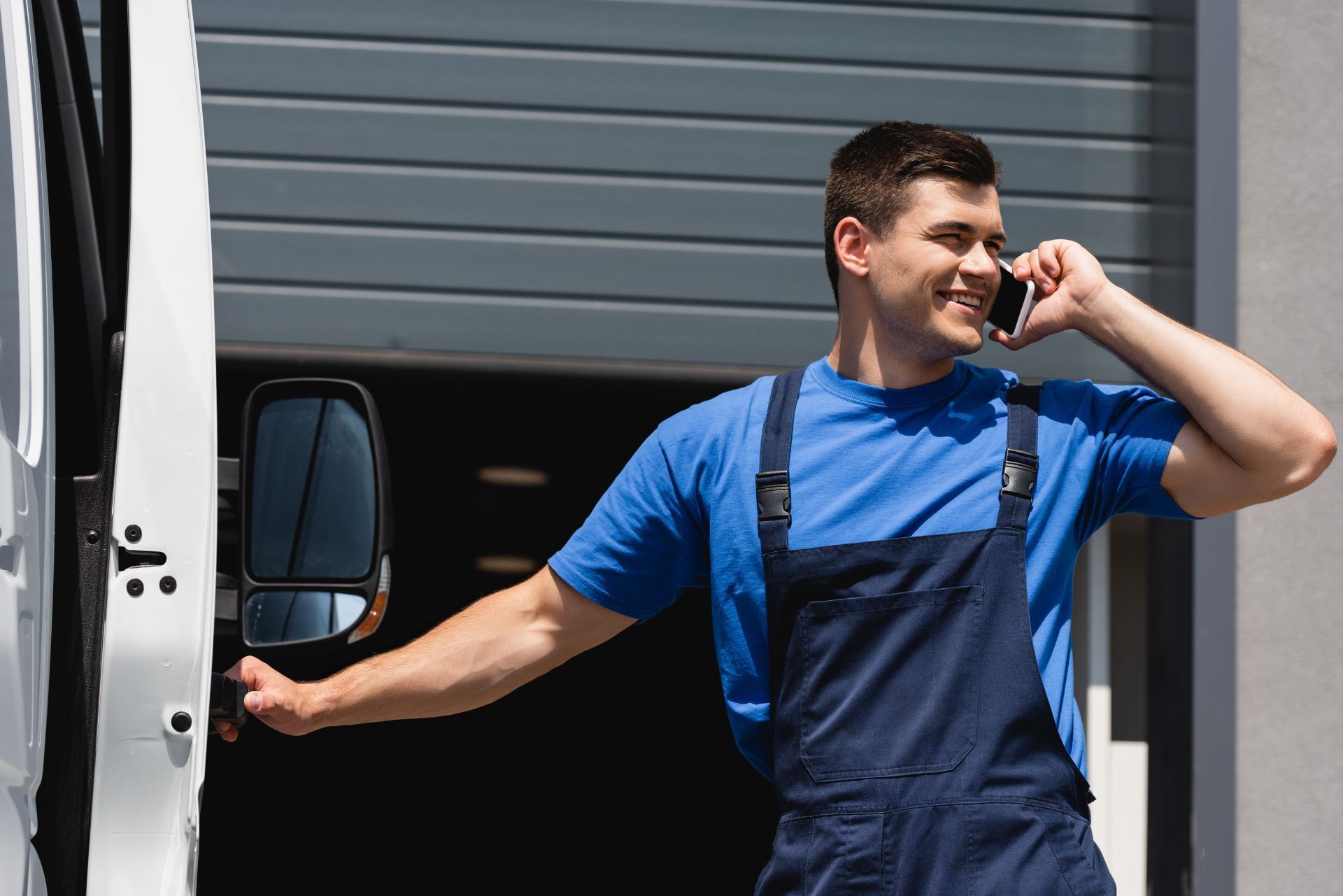
Navigating Claims and Legal Challenges in Florida
Denied insurance claims remain a pressing issue in Florida. In 2024, nearly 13 percent of homeowners whose claims were denied pursued legal action against their insurance companies, a slight increase from 12.4 percent in 2022. This statistic highlights the contentious nature of insurance claims in the state and the importance of clear documentation and proper coverage.
For garage door installers, this means maintaining thorough records of installation work, repairs, and product compliance. Such documentation supports claims and helps avoid disputes. It also reinforces the value of insurance policies that cover legal defense costs. Additionally, installers should be aware of the specific requirements set forth by Florida law, which may include certain disclosures and warranties that must be provided to homeowners. Failing to meet these requirements can lead to complications in the event of a claim, further emphasizing the need for meticulous attention to detail.
Understanding the nuances of Florida’s insurance regulations and working with knowledgeable brokers can prevent costly misunderstandings. Staying informed about market trends, such as the improving rate environment reported by the Jax Daily Record, can also help installers make smarter insurance decisions. Furthermore, engaging in continuous education about changes in legislation and emerging risks, such as those posed by climate change, can empower installers to adapt their business practices accordingly. This proactive approach not only enhances their credibility with clients but also positions them favorably when navigating the complexities of the insurance landscape.
Moreover, it is crucial for garage door installers to foster strong relationships with their clients, as trust can significantly influence the claims process. Open communication about potential risks and the importance of regular maintenance can help homeowners understand their policies better and reduce the likelihood of disputes. By providing valuable insights and recommendations, installers can ensure that their clients are well-prepared should any issues arise, thereby enhancing customer satisfaction and loyalty in a competitive market.
Tips for Choosing the Right Insurance Provider
Selecting an insurance provider requires more than just comparing rates. Garage door installers should look for companies with experience in Florida’s unique market and a track record of handling claims related to natural disasters. Providers that understand the technical aspects of garage door installation and the associated risks can offer more tailored coverage.
Working with an insurance agent who specializes in contractor insurance or Florida-specific policies can make a significant difference. They can help identify gaps in coverage and recommend endorsements that address hurricane risks or equipment breakdowns.
Additionally, installers should review policy terms carefully, paying attention to exclusions and limits. For example, some policies may exclude certain types of storm damage or have sub-limits on expensive equipment. Regularly updating coverage to reflect business growth or changes in local building codes is also important.
Frequently Asked Questions
Q: Is general liability insurance enough for a garage door installer in Florida?
A: General liability is essential but usually not enough. Additional coverage like commercial property, workers’ compensation, and professional liability insurance is often needed to fully protect your business.
Q: How do hurricanes affect garage door insurance in Florida?
A: Hurricanes increase the risk of damage, so insurance policies often include specific coverage for wind and water damage. Installing code-compliant doors can also reduce claim disputes.
Q: What should I do if a homeowner’s insurance claim is denied after I install a garage door?
A: Keep detailed records of your work and communicate with the homeowner’s insurance company. If disputes arise, having proper insurance coverage can protect you from liability.
Q: How much does garage door installation insurance typically cost in Florida?
A: Costs vary based on coverage limits, business size, and location. Labor rates in Florida range from $70 to $110 per hour, with emergency rates higher during hurricane season.
Q: Can I get discounts on insurance if I install hurricane-resistant garage doors?
A: Some insurers may offer better rates or endorsements for businesses that install code-compliant, hurricane-resistant doors. It’s worth discussing this with your insurance agent.
Q: Do I need workers’ compensation insurance if I work alone?
A: If you have no employees, workers’ compensation is usually not required. However, if you hire any staff, it becomes mandatory in Florida.
Q: How can I stay updated on Florida’s insurance market changes?
A: Following updates from the Florida Office of Insurance Regulation and local news sources like the
Jax Daily Record helps you stay informed.
What to Remember When Insuring Your Garage Door Business
Florida’s climate and insurance market create a challenging environment for garage door installers. Securing the right insurance coverage is not just a regulatory requirement but a business imperative. Comprehensive policies protect against liability, property damage, and the financial impact of natural disasters.
Choosing code-compliant garage doors and maintaining thorough documentation can reduce risks and support smoother claims processes. Staying informed about market trends and working with knowledgeable insurance professionals ensures your coverage evolves with your business needs.
Ultimately, well-structured insurance coverage provides peace of mind, allowing installers to focus on delivering quality service in one of the nation’s most demanding markets.

